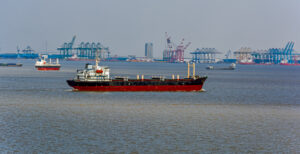
There is an increasing electronic interference within the waters of the Gulf and Straits of Hormuz, according to reports received by the United Kingdom Maritime Trade Operations (UKMTO), which operates a voluntary reporting scheme (VRS) for the Indian Ocean, specifically Red Sea, Gulf of Aden, and Arabian Sea.
UKMTO said it had received multiple reports of the increasing electronic interference combined with the monitoring of AIS.
“Whilst the level of electronic interference continues to rise across the wider region, the levels and intensity inside the Gulf are having a significant impact on vessels positional reporting through automated systems (AIS),” UKMTO added.
It advised vessels to transit with caution and to report incidents of electronic interference to the UKMTO.
The Israeli strikes on Iranian nuclear and military facilities on June 13, followed by Iran’s retaliatory actions, have heightened fears of a broader regional conflict and potential disruption to maritime traffic through the Strait of Hormuz.
Fears have resurfaced that the Iran could target one of the world’s most vital oil arteries, the Strait of Hormuz.
However, market watchers believe that a complete closure of this sea passage is unlikely, given the strategic importance of the Strait of Hormuz to global oil supply.
While Iran has previously threatened to close the strait in response to geopolitical tensions, it has yet to act on such threats.
The prospect of a broader regional conflict following Israel’s airstrikes on Iran has renewed concerns over possible supply disruptions and rising oil prices.



